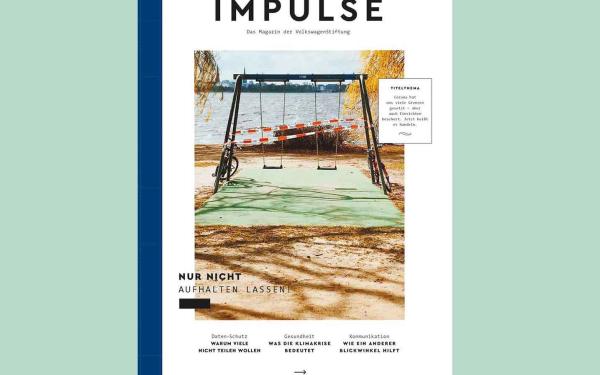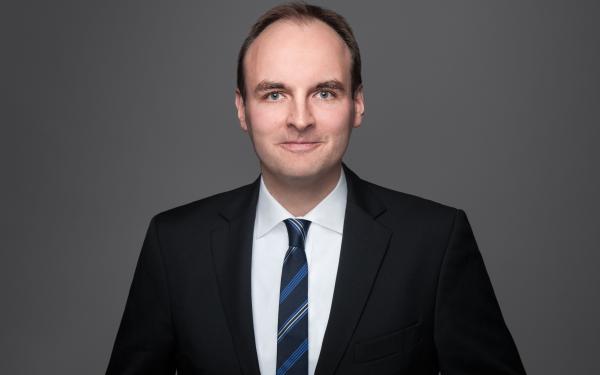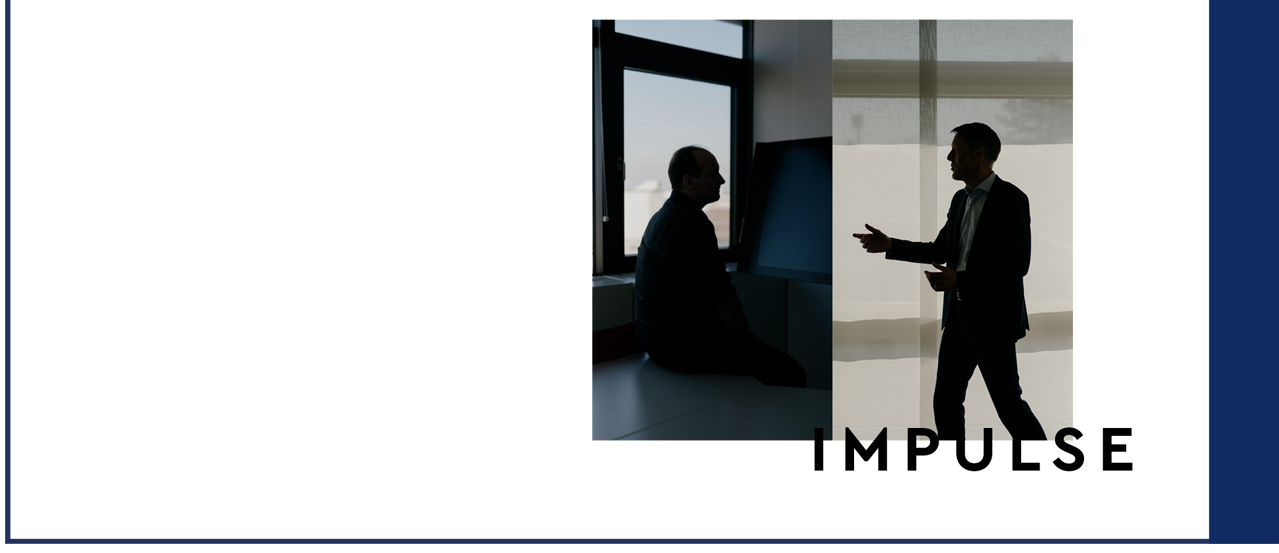
Ludwig Schöffer
Making science crisis-proof
What lessons can be learnt from the pandemic? How must research and the science system change to become more resilient? Professor Johannes Schöning and Dr. Georg Schütte exchanged ideas about possible solutions.
Professor Schöning, how has the corona crisis affected your work as computer scientist at the University of Bremen?
Schöning: My research group deals with the development, implementation and evaluation of innovative user interfaces. Since people are at the center of our work in human-technology interaction, it was particularly disrupting for our doctoral and undergraduate students. We have not been able to conduct studies in direct contact with users for more than a year. However, I also know that other disciplines suffer much more from the restrictions than we do.
Dr. Schütte, you have been Secretary General of the Volks wagen Foundation since January 2020. What has the crisis meant for you?
Schütte: Our organization had to learn to work under new conditions too, which meant becoming more flexible and asking staff to work from home. In terms of content, we took advantage of our autarky by offering funding for corona-related research as early as spring 2020 ("Corona Crisis and Beyond"). The pandemic caused considerable scientific gaps that have to be compensated for.
Schöning: For me, the gaps are manifested primarily in the fact that the university as a place of encounter has been completely paralyzed. Until recently, the only remedy against the pandemic available to us was to restrict contacts. If I look out of my window, I can see that the university is still there – but it is no longer alive.
Schütte: And in the broadest and most abstract sense, creativity lives from the encounter. Fresh concepts, the surprise turn of events, swapping ideas in the group to find new direction, all this threatens to fall by the wayside.
Schöning: To be quite honest with you, I hardly had any good ideas last year. They're in short supply in a crisis, because you have to think of all sorts of things and there´s no time left to think things through in any depth. But then we jumped at the aforementioned funding offer with vigor and can now set about implementing the project "COVID-19 misinformation on social media" we applied for.
What is the project about?
Schöning: It´s about the ramifications of social networks during a pandemic. We see how misinformation is spread, for example regarding the issue of vaccines, and the big impact exerted by the various channels.
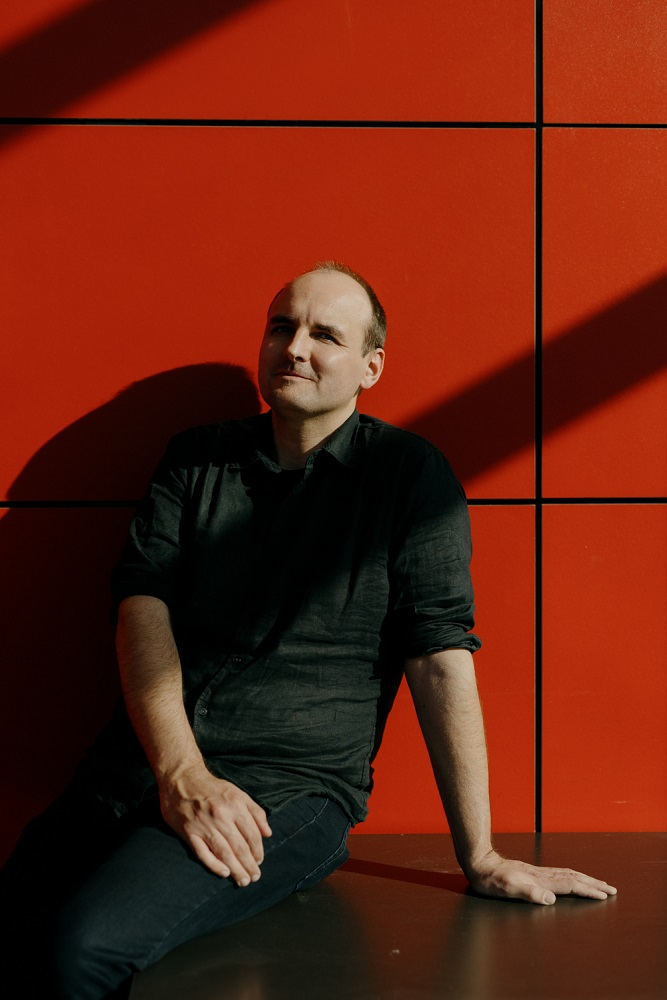
Johannes Schöning is computer scientist and is funded by a Lichtenberg Professorship from the Volkswagen Foundation.
Schütte: Yes, the changing relationship between science, the media and the public also harbors risks. The rationale of science, the search for temporary truths in the constant interplay of results and critical review, comes up against the rationale of the media which consists in the rapid communication of news and elevates every interim scientific result to the status of significant news. This flooding of the public space causes disorientation: Where is the reliable information? And politics works differently again: It faces the permanent challenge of having to make decisions entailing long-term effects on the basis of temporary and insufficient knowledge. In this complex relationship, the actors play different roles, and ruptures occur. Science must also deal with this.
Schöning: The pandemic shows us how important science is. It was and is the only light at the end of the tunnel. At the same time, and this is the great paradox, it hardly benefits from this special role itself.
What do you mean?
Schöning: The findings that led so quickly to new vaccines are based on twenty-five to thirty years of research. That's at least how long the decisive ideas have been in the heads of the researchers. But this long-term nature of science never actually leads to the realization that science also needs to be financed over the long term. On the contrary, in Bremen we are experiencing just the opposite with budget cuts running into millions, and the EU research budget is only stagnating – at best.
Schütte: In my mind, this is one of the pivotal questions: How do we set up our science system in such a way that it will help us cope with crises in the future? The next virus is bound to come, but at the same time we mustn’t lose sight of other societal risks such as cyber security or terrorist threats. We need to take into account the multitude of different challenges and make science better able to respond in the short term and with agility via structures that are sustainable in the long term.
Schöning: There will certainly be further global crises, triggered by climate change, environmental pollution or social inequality. I also see the growing danger of AI-based surveillance systems. And we can't cope with all these problems – together with others that we can't even imagine yet – with short-term bazookas, where politicians suddenly shoot millions and millions of euros at us, expecting science to spit out immediate results. I come from a gardening family, so I know that ecosystems are at their strongest when they are diverse, and they achieve this diversity only through long-term, dedicated care.
Schütte: The German Science Council (Wissenschaftsrat) recently argued quite correctly that we need to make our science system more resilient (Link to the paper (in German): "Impulse aus der COVID-19-Krise für die Weiterentwicklung des Wissenschaftssystems in Deutschland"). Resilient in the sense that it has a high degree of internal plurality and ensures failsafe performance and rapid scalability through partial redundancies. I see universities as an essential element in achieving this goal of resilience. In this respect, you are absolutely right, Professor Schöning: It needs the thematic bazooka. But it also needs redundancies.
How does this fit in with the preference for non-university research organizations in the major science pacts?
Schütte: In retrospect, as someone who was involved in politics at the time, I have to say that the negotiations on the pacts were conducted almost exclusively from the perspective of financial flows. However, I learned from a mentor in science management, who has since sadly passed away, that successful science funding requires three main components: intellect, patience, and money. And in that order.This is one of the reasons why I would now like to see the federal and state governments make up for failing to debate the content of the pact at the time the negotiations took place.
A very self-critical answer, Dr. Schütte.
Schütte: We are all learning… And this pandemic has shown us very clearly as a society where there are deficits.
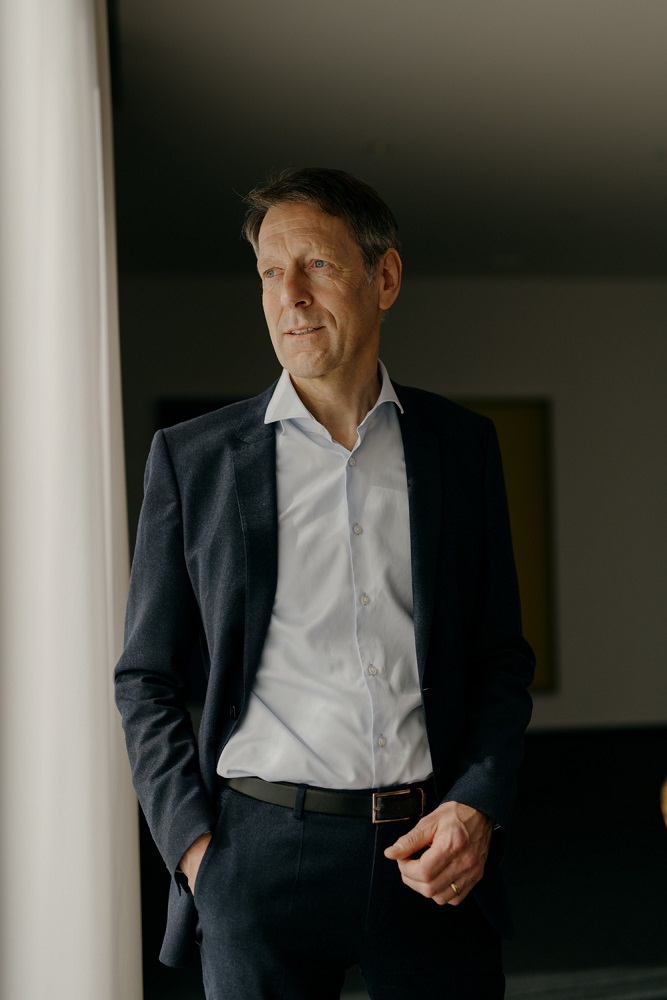
After ten years as State Secretary at the Federal Ministry of Education and Research, Dr. Georg Schütte took over as head of the Volkswagen Foundation at the beginning of 2020. Also in his role as Secretary General, the media and communications scientist is interested in strengthening the role of science in society.
Does this include a debate about science culture as a whole, Professor Schöning?
Schöning: That is the big thematic banner. The basic funding of universities has long been neglected, but that should not lead to the simplistic conclusion: Give us more and the non-university institutions less, and everything will be fine. At the same time, though, we must also ask: What can they do better, and what can we do better? For example, non-university research institutes are on average much more international and diverse. Compare that with the single-digit percentage of German university professors with a foreign passport. The homogeneity of German universities is catastrophic. How do we break through the entrenched structures at universities that prevent more diversity, and what can we learn from non-university institutions? Is it really all about money? I don't think so. Strong science needs the input from the outside, we need the input of different genders, origins and walks of life. We can no longer afford to simply overlook 50 to 80 percent of the talent out there.
Schütte: I was recently involved in the review of a large research network, and the feedback from the international review panel was: "If you don't open up and encourage diversity, you will miss out on attracting talent from abroad.” The clarity of this message impressed me very much.
Schöning: We're talking about modern leadership here.
Schütte: Exactly! Despite all the financial shortcomings, we now invest more than three percent of our gross domestic product in research, development and innovation. This is a substantial social commitment, and in return it calls for professionalization in the management of science – not least because of the great responsibility for the next generation of researchers, who rightly enter this system with a different set of expectations.
How would you describe this new leadership style?
Schütte: Transparent. Participative. It balances the relationship between demanding and challenging, between taking part and supporting. Only if scientific institutions are managed professionally, they can be satisfactory to politics. Only then they can demand more money and at the same time show that they are capable of handling these funds responsibly.
Schöning: But what we must avoid under all circumstances is that the requirement for modern management leads to managers being imposed on science from the outside. Science is essentially different from business, which is why, in my view, this kind of approach must always go astray. Modern leadership in science means professional leadership of science by itself.
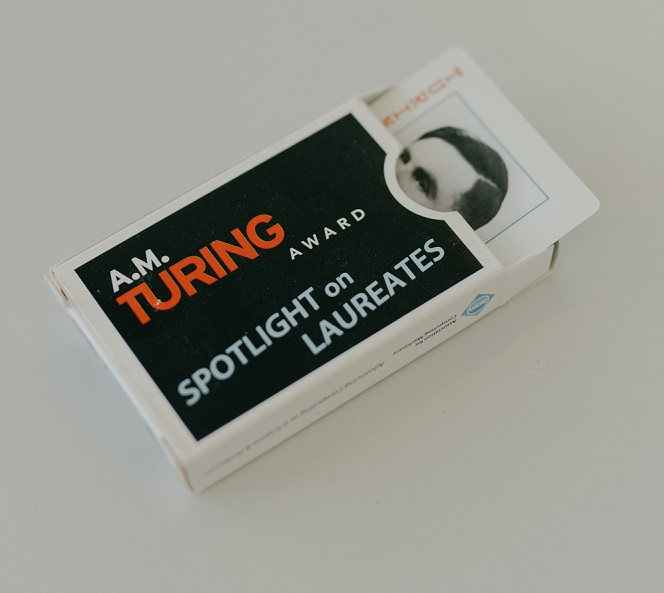
Takeaway from the Turing Award Ceremony in 2012 when Johannes Schöning received the ACM Eugene L. Lawler Award together with Thomas Bartoschek.
However, the attractiveness of science depends not only on questions of culture, but also on the funds available. What is the future likely to bring on the whole?
Schütte: Talks about making cuts inevitably lead to prioritization. At first, this can be quite salutary in order to finally address obvious system weaknesses. But at the same time the realization must prevail that investments in the science system are provisions for the future. In other words, cutting back on research during the crisis prevents us from being able to shape the future after the crisis. We must think ahead. All of us – but also society as a whole – have painfully had to learn where the really pressing issues lie, and now is the time to systematically look for answers.
What does that mean in concrete terms?
Schütte: That we have no choice other than to become more imaginative. As a foundation committed to the common good, we have an average of around 90 million euros a year at our disposal to further develop the nationwide and international promotion of science. We have just launched three new profile areas, one of which is called "Understanding Research. Evaluation and science practice". On the basis of critical reflection, our goal is to launch pilot initiatives that show how things can be done better. As always, we hope that good and successful ideas will spread and find resonance in the science system.
You also mentioned two other new areas.
Schütte: The second profile area – titled "Societal Transformations" – is intended to advance the discourse on how societies change and the major challenges that drive them to change. The third profile area, "Exploration" on the other hand, follows the bottom-up principle and asks for emerging new ideas that have the potential to significantly advance science as a whole. Here, we focus more on intra-scientific processes to pave the way for new knowledge. Thus, our thinking on funding has two poles – on the one hand, societal change and, on the other, scientific momentum and creativity.
Schöning: But the question is also how to bring these two poles closer together. Personally, I would like to see more researchers enter politics. They would be better able to illustrate the long-term effects of science. Political debates always have an emotional, personalized level, and it is precisely on this level that scientists who go into politics could be the most effective.
Schütte: An important keyword for me is cross-link competence. In networked societies, we need people who can occupy the interfaces. This is true for interdisciplinary science, but it is also true in the relationship between science and politics. Nevertheless, I don't quite agree with you when you say that we simply need more people from universities in politics. Politics is a demanding professional field, and you don't acquire this competence just like that. But of course, the goal of anchoring scientific thinking in politics is right and an important requirement. Nevertheless, it is also difficult to achieve, precisely because in politics other mechanisms come into play.

